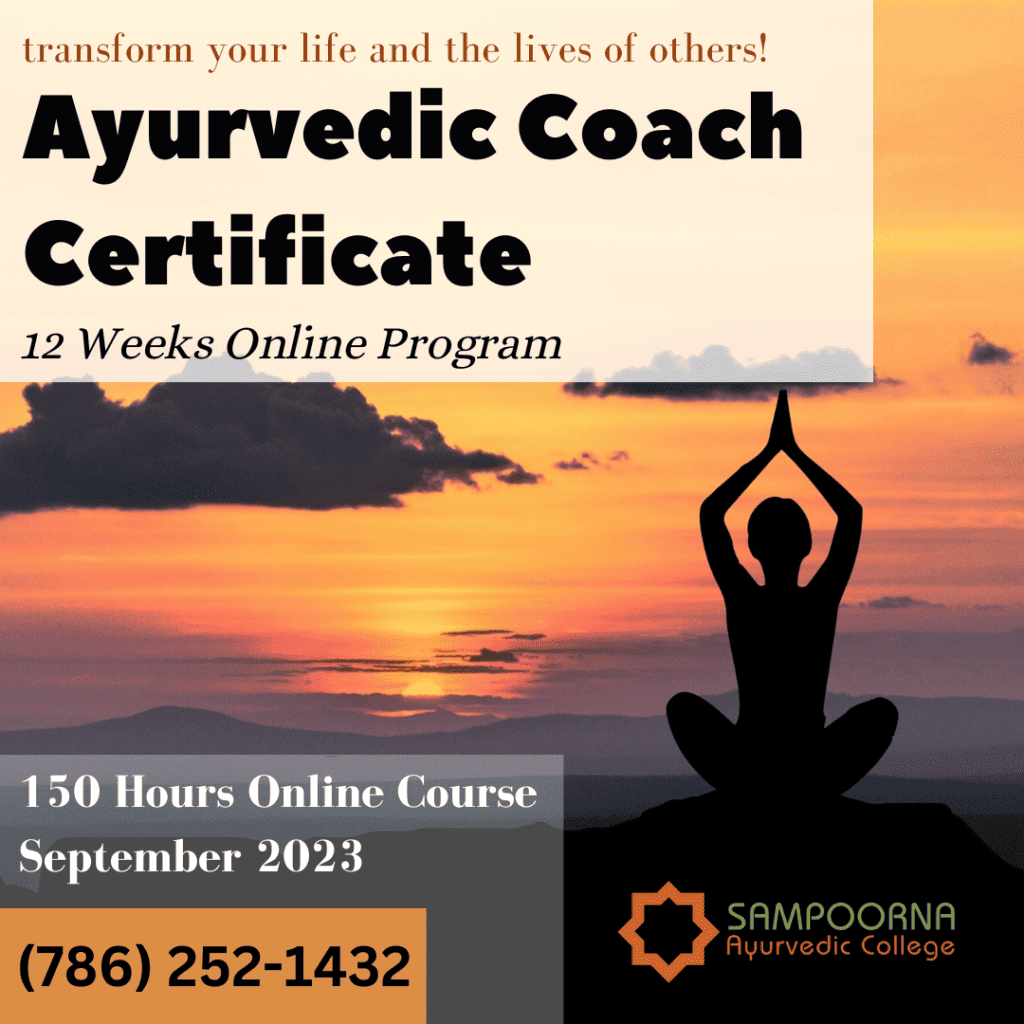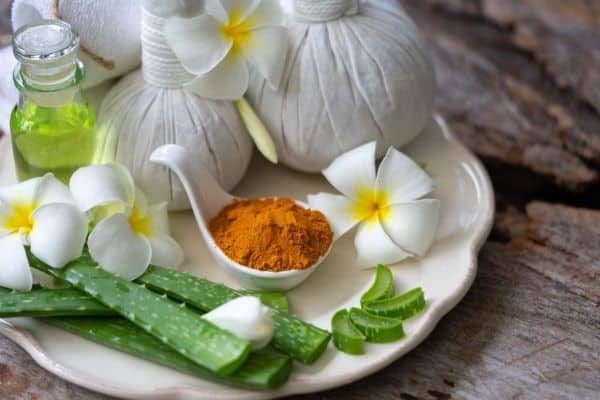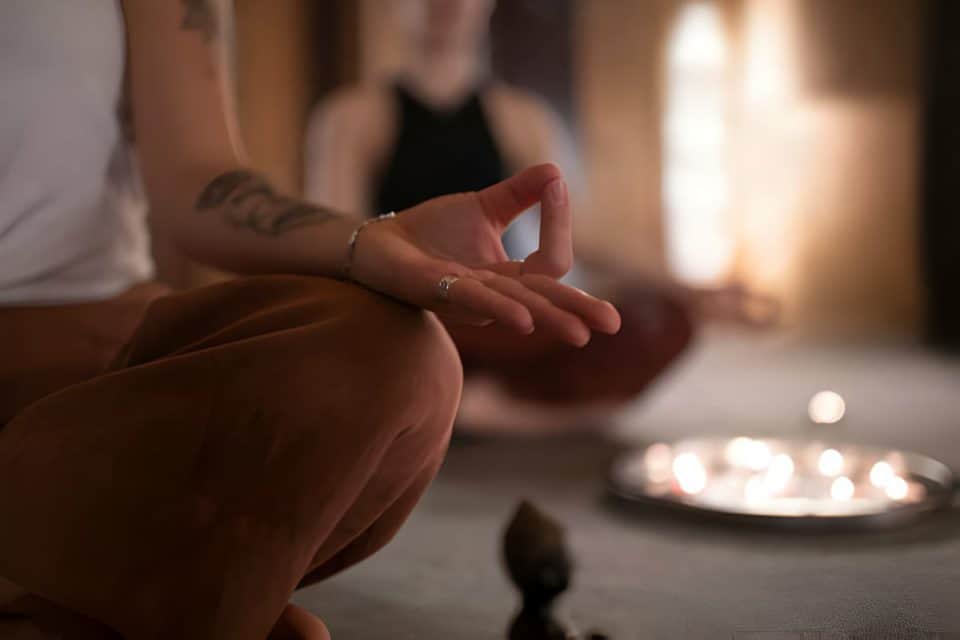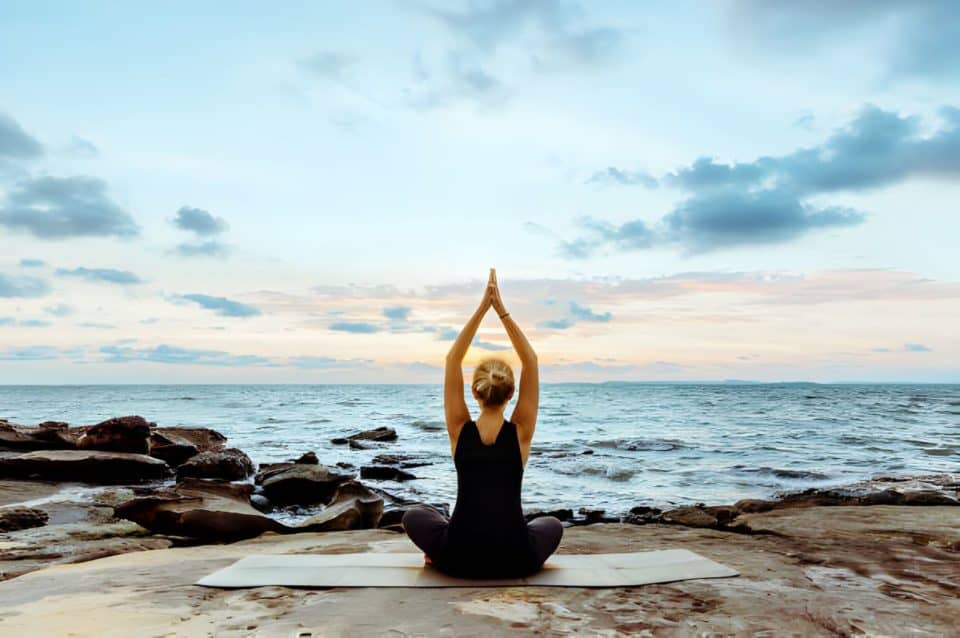Imagine the relentless itch, redness, and discomfort that nearly 32% of the U.S. population experiences due to a chronic skin condition – eczema. But what if there’s more to it than what meets the eye?
Welcome to the Ayurvedic realm, a 5,000-year-old healing system that interprets eczema (described as Vicharchika) far beyond skin deep, considering it a manifestation of internal imbalances. As Ayurvedic experts, we have seen firsthand how a shift in perspective and treatment approach can revolutionize eczema management.
This blog will explore the intricate Ayurvedic viewpoint on skin health, providing an insightful understanding of eczema and the natural, holistic ways to manage it. Get ready to demystify eczema, not as a mere skin condition but as a holistic health matter.

Understanding Eczema in Western Medicine
Eczema, also known as Atopic Dermatitis, is a chronic skin condition characterized by dry, itchy, and inflamed patches of skin. It’s prevalent among children but can occur at any age and persists throughout adulthood in specific individuals.
There are several types of eczema: Atopic Dermatitis, Contact Dermatitis, Dyshidrotic Eczema, Nummular Eczema, Seborrheic Dermatitis, and Stasis Dermatitis. Each type has unique triggers and manifests in different ways, although itchy, inflamed skin is a common symptom across all kinds.
Check how Ayurvedic oils can substitute Minoxidin.
Conventional treatments for eczema
Conventional medicine primarily focuses on managing symptoms and preventing outbreaks.
Common treatments include topical corticosteroids to reduce inflammation and itching, moisturizers to hydrate the skin, and systemic medications or phototherapy in severe cases. Antihistamines and antibiotics may be prescribed to manage severe itching if the skin becomes infected.
While these treatments can effectively manage symptoms, they do not address the root causes of eczema, which is where the Ayurvedic approach steps in, providing a unique perspective on this common skin condition.
Ayurvedic Perspective on Eczema
In Ayurveda, the skin is not just a protective barrier; it’s an interactive, dynamic organ that reflects our internal health. It’s believed that any disruption in the skin, such as eczema, signifies an underlying imbalance in our fundamental bodily systems or ‘Doshas‘ – especially Pitta and Kapha.
Concept of Doshas And Their Role In Skin Health
According to Ayurveda, every individual has a unique balance of these three doshas, influencing physical, mental, and emotional health. Vata governs movement and circulation; Pitta controls metabolism and transformation, and Kapha rules structure and lubrication.
In skin health, Vata dosha controls the skin’s dryness, Pitta manages the skin’s heat and inflammation, and Kapha maintains skin hydration. An imbalance in these doshas can contribute to skin problems in general.
Ayurvedic understanding of the root causes of eczema
Ayurveda views eczema as primarily a result of aggravated Pitta dosha, which manifests as inflammation and redness on the skin and Kapha dosha leading to itchiness. This imbalance may be caused by improper diet, stress, and environmental allergens.
Ayurveda enlists general causes of skin diseases in general concerning food, habits and mental status. There are some general predisposing factors such as age, family history, allergy, debility, environmental factors and exposure to chemicals.
Different foods cause skin issues such as incompatible food combinations, a variety of grains, milk, curd, and buttermilk. Fish with milk. Meat and milk products. Excessive use of alcohol, sour taste foods along with milk, mixture of vegetables with milk preparations, mix with honey and meat, intake of fish, lemon and milk. Also, junk food, dark chocolate, meat, processed meat, spicy and salty foods.
Ayurveda mentions some habits to consider as possible causes for eczema; physical exercise and sunbathing after meals, sleeping during the day, sexual intercourse during indigestion, exposure to cold temperatures while one is experiencing fear, exhaustion, and the withholding of natural urges such as defecation, urination, sneezing, hunger, and sleep.
Ayurveda states at the mental level; there are behaviors that can promote skin conditions, such as stealing, disrespect, and violation of other people’s boundaries.
At the psychological level, eczema could indicate a conflict of separation, fear of being alone or mental eruption.
Ayurvedic Treatment Approaches for Eczema
Dietary recommendations in Ayurveda for eczema
In Ayurveda, food is considered medicine, playing a vital role in balancing the doshas.
Incorporating cooling and hydrating foods like cucumber, coconut, and melons and avoiding spicy, fried, and fermented foods can help manage inflammation. Also, it’s beneficial to include omega-3-rich foods such as flaxseeds and walnuts that promote skin health.
Emphasize light foods, bitter vegetables, aged basmati rice, barley, and wheat if you are not allergic to gluten, products high in Vit. A and C, zinc, and drink plenty of water. Aloe Vera juice. Introduce ghee to your diet. Add sprouts, vegetable soups, and kitchari.
Avoid heavy foods, excess milk and dairy products, sour foods, curd, fish, horse and black gram, spicy and salty foods, processed sugar, and sugarcane derivatives.
Ayurvedic herbs and remedies for managing eczema
Herbs like neem, turmeric, and aloe vera have potent anti-inflammatory properties. Neem is known as ‘the village pharmacy’ in India due to its versatile healing properties. Topical applications of these herbs, such as oils or pastes, can help soothe the skin, reduce inflammation, and promote healing.

Herbal formulas include Mahamanjisthadi tablets or Kwatha, Kaishore Guggul, Triphala Guggul, and Pancha Tikta Kashaya (herbal decoction with five bitter herbs). Single herbs such as Manjistha, Sariva, Guduchi, and Bakuchi are suggested in the treatment of Vicharchika.
Please consult your Ayurvedic professional for the use of herbs and herbal preparations.
Role of stress management and lifestyle changes in treating eczema, according to Ayurveda
Stress is a known trigger for eczema flare-ups, and Ayurveda emphasizes managing stress through mindful practices. Regular meditation, yoga, and Pranayama (breathwork) can help reduce stress and promote overall well-being, which, in turn, can help manage eczema. Adequate sleep and regular physical activity also contribute to healthier skin.
Furthermore, Ayurveda recommends specific daily routines, or Dinacharya, to promote balance and health. For instance, daily self-massage, or Abhyanga, using coconut or sunflower oil, can hydrate the skin and balance the doshas, which is beneficial for managing eczema.
Ayurveda recommends proper Panchakarma therapy which requires a minimum of 28 days in treating eczema in order to uproot the cause of the disease.
This holistic approach to treating eczema helps manage the condition and improves overall health and well-being.
Conclusion
Ayurveda offers a holistic lens to view and manage eczema, moving beyond symptom management to addressing underlying imbalances. Through dietary changes, herbal remedies, and lifestyle adjustments, Ayurveda empowers individuals to take charge of their skin health.
As we delve deeper into this ancient wisdom, we discover that eczema, like any health condition, is an opportunity to understand our bodies better and bring about balance and harmony.
So, let’s embrace this Ayurvedic viewpoint, transform our routines, and embark on a journey toward vibrant skin health and overall well-being.




